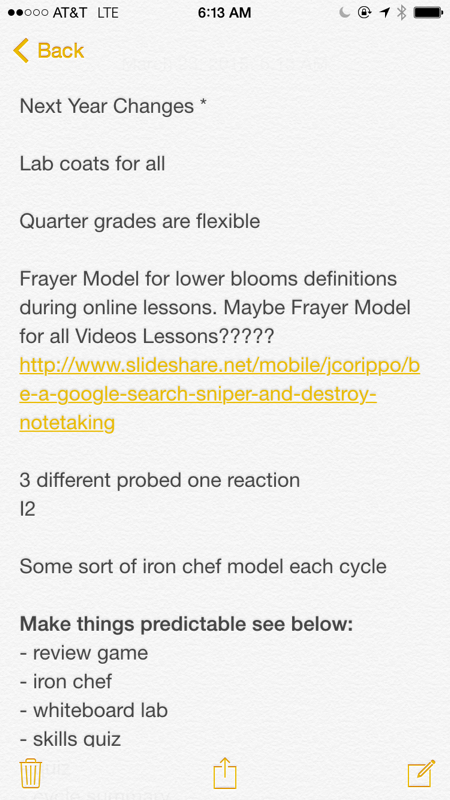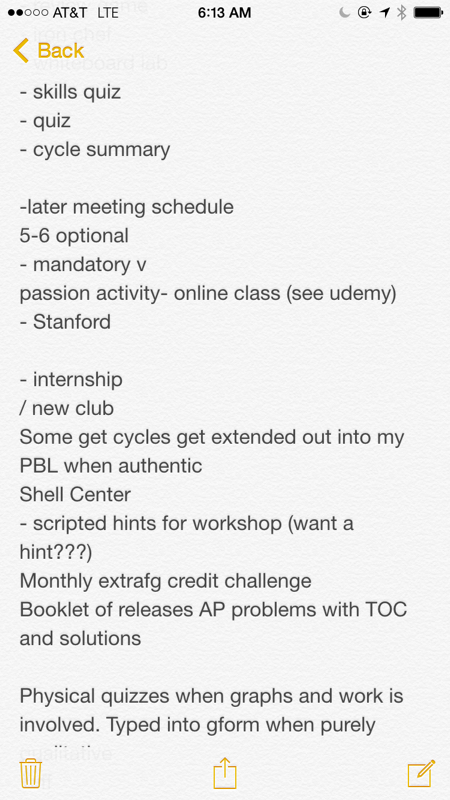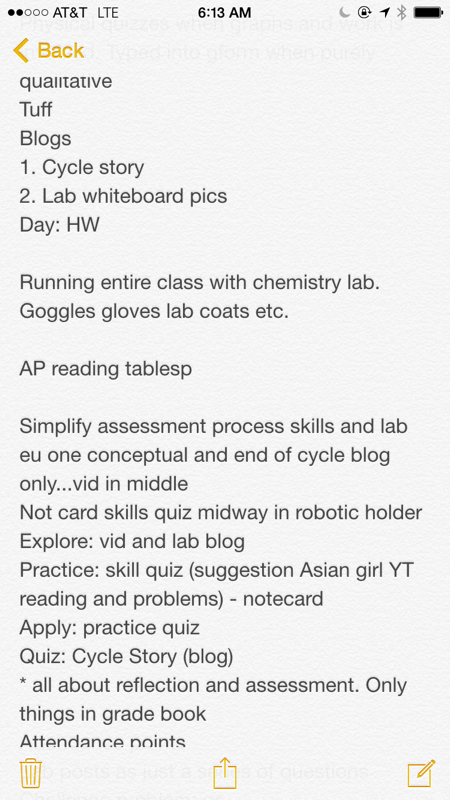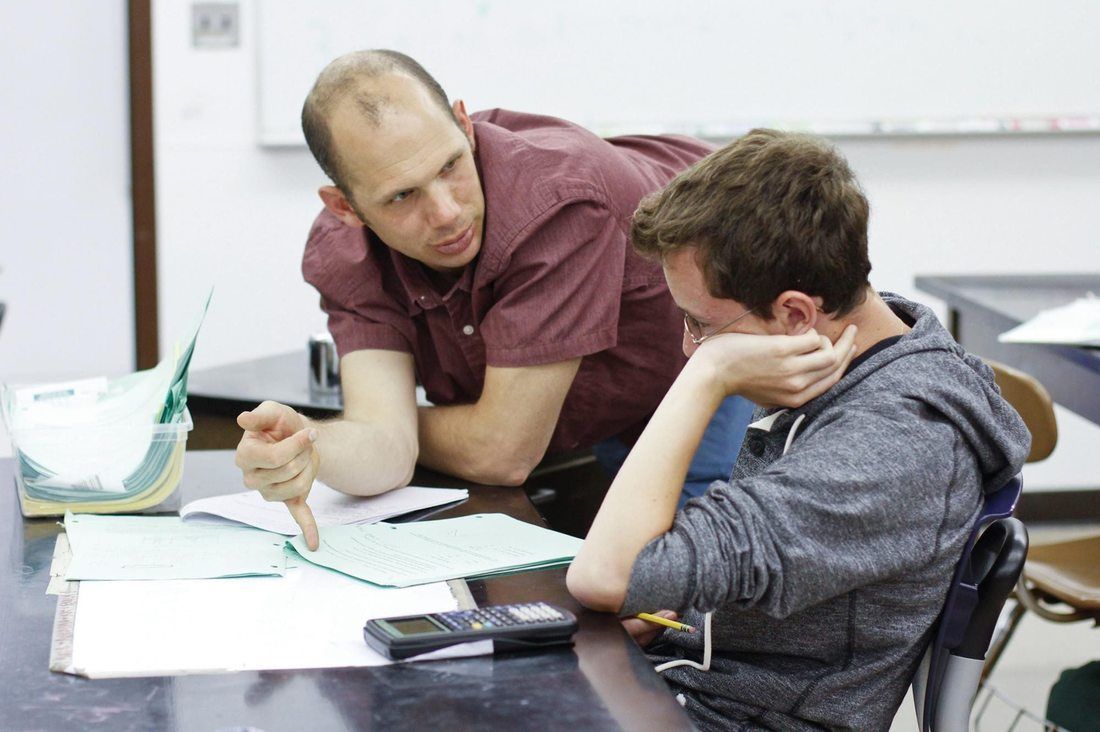|
|
|
This is about the time in every school year that I realize all the things that I did wrong. All the things that I want to change. In the past I would start implementing those changes now in April, more to just prove to myself that I can do it better and less to actually facilitate real change in the classroom. Unfortunately, this is the honest truth with me and pedagogy sometimes. I find myself wanting to prove that I can tweak pedagogy, rather than just sit tight and enjoy the consistent flow that has already been created with my students this year. All years are different, and I hope that one day I'll be able to just sit with that and enjoy it. As for now, I've started keeping track of all of the changes I'm going to make for next year rather than simply implementing them in a haphazard and inconsistent manner. Getting them of my "pedagogical chest" and into a place where I can reference over the summer when planning next year's curriculum seems to have added a calming sense to my obsessive-compulsive teaching disorder." Below are a few screenshots from my "next year changes" notepad: Just sent this message to my students via a Schoology update the night before quarter 3 grades come out. I am not normally this agro about assessment, but my fingers just couldn't stop writing. I thought I would share:
FULL DISCOLSURE: While I understand the importance of grades in applying to college, and with your parents, I fully believe that grades are the enemy of true engagement with beautiful phenomena such as Chemistry. I L O V E my "job" and find awarding one of basically three letters (A,B or C) to you, you amazing, diverse, beautiful, people, who deserve paragraphs and paragraphs devoted to your names, is extremely counterintuitive and offensive. You are more than an "A" or a "B" and if there is one thing I have learned on my quest to live a life where I L O V E my vocation, it is that we all carry genius with us...and we are all on a journey to find that genius...where it hides, and what feeds it. I feel grading you is plain offensive. At least the way we do it...I have done it. Perhaps that means I have yet to figure out a way to make it meaningful...and I'm on the that journey. But, here we are, and we have to do it...and maybe thats why I try to put so much into each class...to fight the system, and make you forget, maybe for a split second, that an institution is awarding a letter to your name...to describe the beauty of you. Ok, done ranting. #teammusallam Presentation As chemistry educators, we are called to not only help our students negotiate the algorithmic complexities intrinsic to the discipline, but perhaps more importantly, work towards a deep conceptual understanding of matter and its interactions. Helping our students bridge this qualitative-quantitative gap makes chemistry education a daunting but highly rewarding vocation. Current movements such as revised AP curricula and the Next Generation Science Standards provide a framework for this process, however cultivating a culture of curiosity and discovery in the context of chemistry's complexities calls the chemistry teacher, more than ever to see the profession as both an art and a science. This keynote will detail one chemistry educators journey into this process and make a case for the art of chemistry education. Session Sparking student curiosity around a chemistry topic doesn't always have to be done using an exciting classroom demonstration or perplexing video clip. Although such mediums can be useful in stimulating student questioning around chemistry phenomena, sometimes simple adjustments to the way in which information is presented can be can make all the difference. During this session participants will be exposed to a variety of research-based strategies to help elicit student questioning and and spark authentic student curiosity around a certain topic or idea. |
Categories
All
Archives
March 2024
|




 RSS Feed
RSS Feed